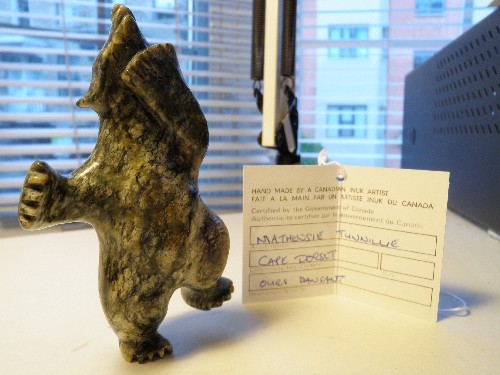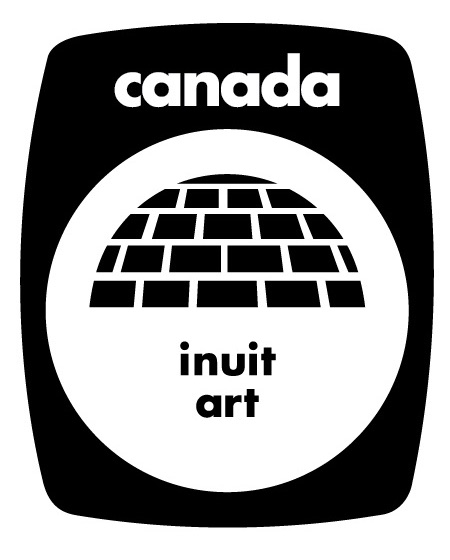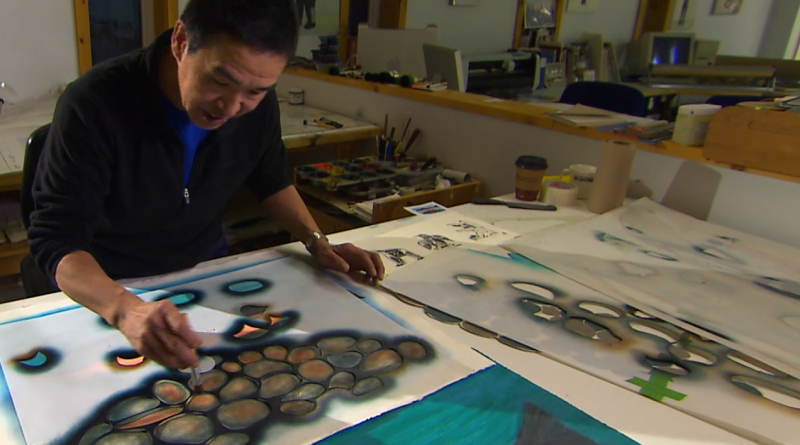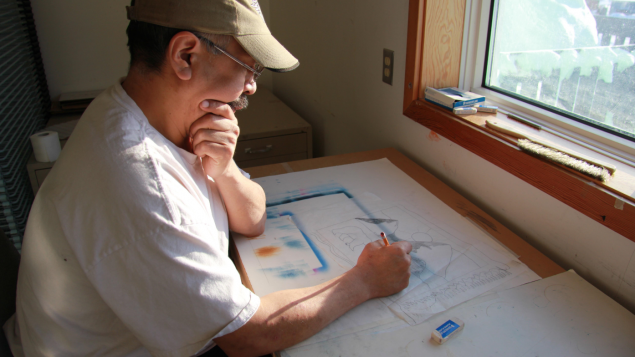Eye on the Arctic brings you stories and newsmakers from across the North
The Canadian province of Ontario may be a southern province, but this week it pledged $96,844 towards the Inuit Art Foundation’s update to the Igloo Tag Trademark.
The money was part of a series of funding announcements made on Thursday by David Zimmer, Ontario’s Minister of Indigenous Relations and Reconciliation.
“These grants are part of Ontario’s commitment to work closely with Indigenous partners so they can fully develop the talent and economic opportunities in their communities,” Zimmer said in a news release. “From supporting education and employment opportunities for single mothers to protecting Inuit art and culture and beyond these are important steps in Ontario’s journey of reconciliation.”
Although, none of Canada’s traditional Inuit territory is found in Ontario, many of the country’s most important Inuit art galleries and organizations are located in the province.
Art trademark gets a rethink

A carving by the late Mathewsie Tunnillie (1984-2009) with its igloo tag listing the artist’s name, community and description of the work. (Eilís Quinn/Eye on the Arctic)
The igloo tag was created in 1958.
It was developed by the government of Canada after counterfeit, mass-market works began hitting the market to take advantage of Inuit art’s popularity in the South.
The goal was to create a trademark that would protect both Inuit artists and buyers from fake works and ensure the robustness of the Inuit art economy.
Each tag includes an igloo trademark, along with things like the artist’s name and home community, allowing the work’s provenance to be easily authenticated.
The Canadian government handed over control of the tag to the Inuit Art Foundation, which promotes Inuit artists and publishes the magazine Inuit Art Quarterly, in 2017.

The updated igloo tag trademark that will be issued by the Inuit Art Foundation. (Inuit Art Foundation)
Role in modern-day art market
Alysa Procida, executive director of the Inuit Art Foundation , said the grant will help the organization make the trademark more relevant to the modern-day art market.
“That includes everything from updating the actual trademark itself, which now says “Inuit art,” rather than a more outdated terminology, to conducting consultations with artists who have never really been asked before what else they would like the trademark to do or how else it might be used,” Procida said in a phone interview from Toronto.
Possibilities include expanding the types of art it could be applied to, licensing, and making the trademark available to Inuit artists no matter which region of Canada they belong to or work in. (Currently, Inuit artists in Nunatsiavut, the Inuit self-governing region of Newfoundland and Labrador in Atlantic Canada, and Inuit artists in southern Canada, do not have access to the tag.)
Economic heft
A study released in 2017 found that Inuit art contributed $87.2 million to Canada’s GDP and that the igloo tag trademark contributed $3.5 million annually to the Inuit arts economy.
It also found that the presence of the igloo tag increased the perceived value of a particular work by approximately $117 CDN.
To view Eye on the Arctic’s in-studio interviews with Inuit artists from across Canada, visit our special video section:
The art and artists of Canada’s Arctic

Artist Jolly Atagooyuk working in studio in Pangnirtung, a community in Canada’s eastern Arctic territory of Nunavut. (Eye on the Arctic)
Write to Eilís Quinn at eilis.quinn(at)cbc.ca
Related stories from around the North:
Canada: Inuit art featured on new Canadian banknote, Eye on the Arctic
Finland: London gallery offers multimedia Sámi art, Yle News
Greenland: Canadian artist explores Greenland’s past, Eye on the Arctic
Russia: Karelian art on show in Russia, Yle News
Sweden: Swedish Sámi visual artist shaping climate changes, Radio Sweden
United States: ‘I Am Inuit’ goes from Instagram to museum in Anchorage, Alaska, Alaska Public Radio Network








For reasons beyond our control, and for an undetermined period of time, our comment section is now closed. However, our social networks remain open to your contributions.